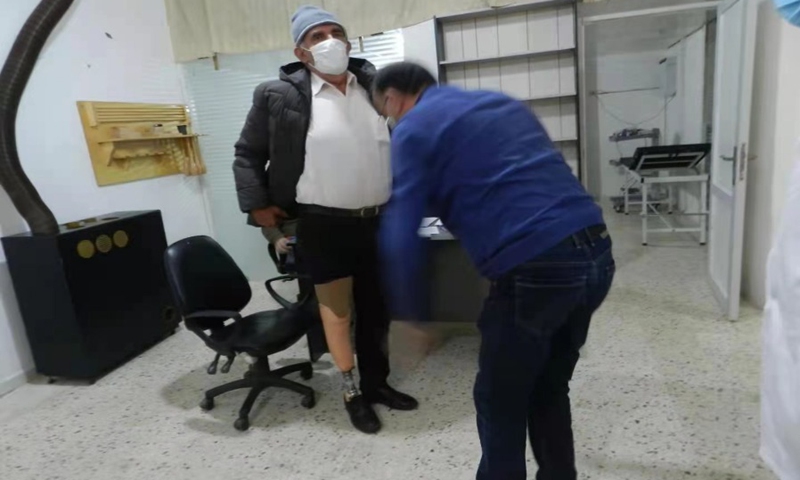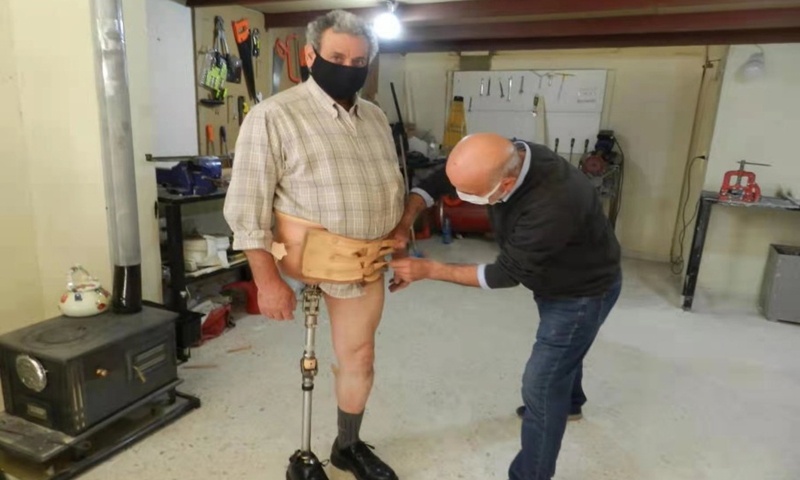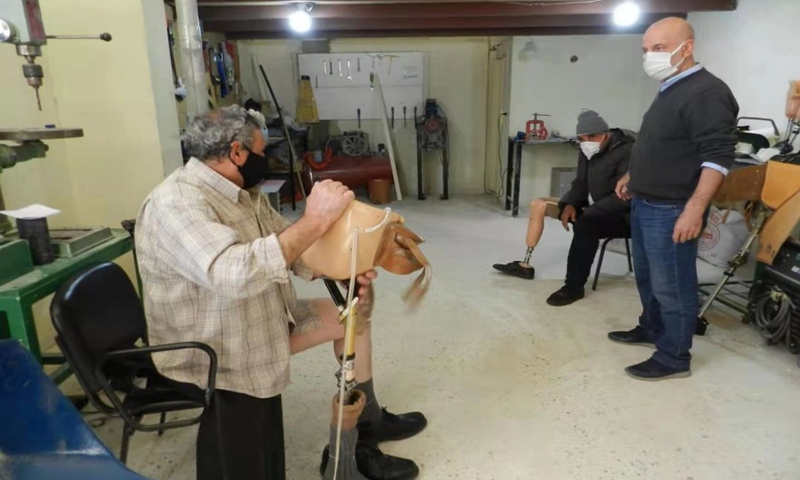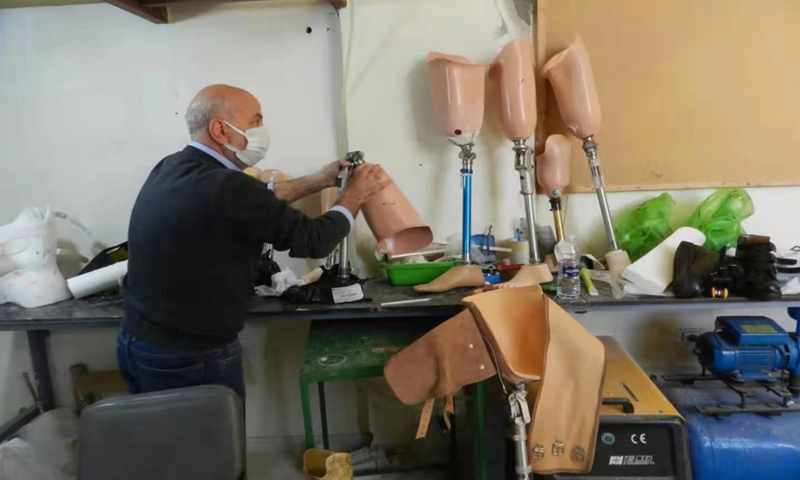
A technician installs an artificial leg for a victim of cluster bombs at a center launched by the Vision Association for Development Rehabilitation and Care in the Bekaa town of Lebanon, on Feb. 20, 2021.(Photo: Xinhua)

A technician installs an artificial leg for a victim of cluster bombs at a center launched by the Vision Association for Development Rehabilitation and Care in the Bekaa town of Lebanon, on Feb. 20, 2021.(Photo: Xinhua)

A victim of cluster bombs holds his artifical leg and waits for the technician to install it at a center launched by the Vision Association for Development Rehabilitation and Care in the Bekaa town of Lebanon, on Feb. 20, 2021.(Photo: Xinhua)

A technician prepares to install an artificial leg for a victim of cluster bombs at a center launched by the Vision Association for Development Rehabilitation and Care in the Bekaa town of Lebanon, on Feb. 20, 2021.(Photo: Xinhua)
Nihad Abou Dargham, a 60-year-old Lebanese man, never imagined that he would return to work at his farm after he had his leg amputated three years ago after the explosion of a cluster bomb in a field in southern Lebanon.
The gloomy days remained until a prosthetic leg, provided by the Vision Association for Development Rehabilitation and Care equipped with doctors and volunteers specialized in the fields of preparing, manufacturing and installing prosthetic limbs, gave him new hopes.
"Now I am free to walk without a cane. I will be able to return to my farm and raise my livestock again as this is my only source of living," Dargham told Xinhua, adding he will reopen his butchery since he is now able to walk again.
Samer Abdel Aal, a young Lebanese man in his 30s, and Nahla el-Basha, a 34-year-old Lebanese woman, both also have got an artificial limb with the aid of the association and are happy about their new life.
"I will finally resume my work of pruning trees and farming fields in my town," Aal told Xinhua.
Basha said she can finally shake hands and perform some simple tasks with her artificial hand.
"The purpose of this artificial hand is mostly cosmetic, but I feel a huge difference now that I can live my life in a more acceptable way," she told Xinhua.
The about 4.5 million cluster bombs left by the Israeli army in southern Lebanon during a war between the two countries in July 2006 have so fat killed and wounded more than 1,000 Lebanese citizens, including experts in mine clearance, and caused physical disabilities to about 4,000 others.
This has prompted the Lebanese association to launch an initiative to provide free physical therapy, prostheses and orthotic devices for the paralyzed people and those who have their limbs amputated in the country.
Nasser Abu Latif, the association's president, told Xinhua that the initiative, which was just launched on Saturday, was inspired by the deterioration of the economic situation in the light of COVID-19 outbreak and the poverty that has affected a large proportion of the Lebanese people, especially those who suffer from physical disabilities.
"This initiative aims at motivating victims of cluster bombs to integrate into their community and return to their work to generate income and make a living," Abu Latif said, adding the ministries of public health and social affairs, Council for South Lebanon, and the international supporters such as the International Rehabilitation Fund have helped launch the initiative.
Rawad Ghachem, a member of the association who is in charge of prosthetic limbs' installation, told Xinhua that providing people who were injured by cluster bombs with limbs has become an urgent matter given the psychological and social implications for the lifestyle of this group of people.
"Artificial limbs will motivate injured people to return to work, especially when 98 percent of them are farmers and cattle herders," he said.
